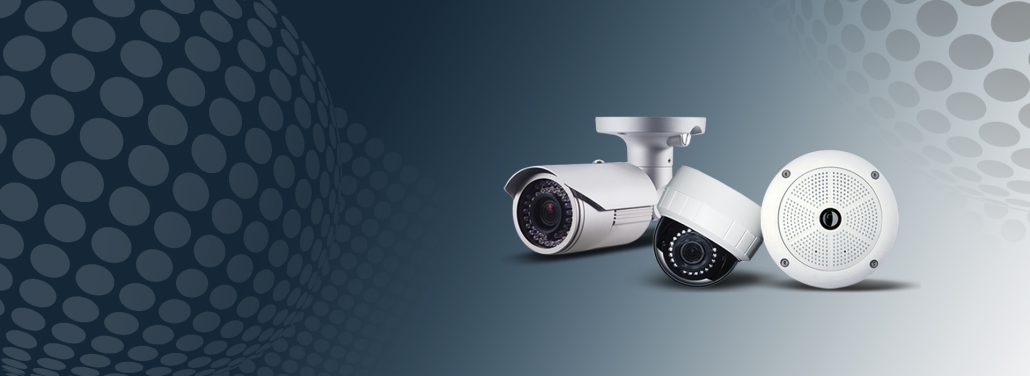How Secure Are Wireless Security Cameras in Pakistan?

Wireless security cameras have become a popular choice for homeowners and businesses across Pakistan. From deterring break-ins to allowing remote surveillance via smartphones, these devices offer convenience and a sense of safety. But here’s the big question: How secure are wireless security cameras? It’s important to remember that a wireless security system isn’t automatically foolproof. Like any technology, it comes with strengths and vulnerabilities, and how you use it determines whether it’s truly reliable.
In this blog, we’ll explore the rise of wireless security cameras in Pakistan, their advantages, potential risks, and most importantly—how you can keep your home and office surveillance secure. Whether you’re considering installing your first wireless CCTV system or upgrading an existing one, this guide will give you the clarity you need.
The Rise of Wireless Security Cameras in Pakistan
Over the last few years, Pakistan has seen a huge shift toward wireless CCTV cameras. Previously, most homeowners and offices relied on wired surveillance systems, which required complex cabling and professional installation. Today, people prefer the flexibility of Wi-Fi security cameras because they are easy to install, affordable, and accessible through mobile apps.
From big cities like Karachi, Lahore, and Islamabad to smaller towns, demand has skyrocketed thanks to increased awareness about home security, smart homes, and remote monitoring. Families use wireless cameras to check on their children or elderly parents, while businesses rely on them to keep an eye on shops, warehouses, and offices.
The trend is also fueled by brands like Hikvision, IMOU, and EZVIZ, which now offer budget-friendly models with night vision, pan-tilt features, motion detection, and even AI-based human recognition. But popularity raises a new question: with so many wireless cameras operating over the internet, how secure are they really?
Benefits of Wireless Security Cameras
Before diving into risks, it’s worth acknowledging why wireless CCTV systems have become so popular:
Easy Installation – No messy cabling. Just plug in the camera, connect to Wi-Fi, and you’re ready.
Remote Access – Monitor your home or office anywhere in the world via smartphone apps.
Flexibility – Place cameras anywhere within Wi-Fi range; ideal for renters and small businesses.
Smart Features – Motion alerts, two-way audio, human detection, and cloud storage make them much more advanced than older wired systems.
Affordability – Wireless cameras are budget-friendly compared to professional wired setups.
With these benefits, it’s no surprise that people in Pakistan are shifting toward wireless security solutions. But with convenience comes responsibility.
The Security Risks of Wireless CCTV Cameras
Like any internet-connected device, wireless cameras can face potential security risks if not installed and maintained properly. Here are the most common vulnerabilities:
Hacking Attempts – Weak passwords or outdated firmware make cameras vulnerable to cybercriminals.
Cheap, Unbranded Models – Low-quality cameras without encryption can easily be compromised.
Wi-Fi Interference – Poor internet security can lead to unauthorized access.
Cloud Storage Risks – If not managed properly, stored footage may be exposed.
Physical Theft – Being portable and easy to install also makes them easy to steal if not mounted securely.
These risks don’t mean wireless cameras are unsafe—they just mean you need to take precautions.
How to Make Wireless Security Cameras Safer
The good news is that most risks can be avoided with the right steps. Here are expert recommendations:
Choose Trusted Brands – Always buy from reliable brands like Hikvision, EZVIZ, and IMOU instead of cheap, no-name imports.
Use Strong Passwords – Avoid default passwords; create complex, unique ones.
Enable Encryption – Use WPA2 or higher Wi-Fi encryption to secure your network.
Keep Firmware Updated – Regularly update your camera’s software to patch vulnerabilities.
Use Secure Apps Only – Access your footage through official apps from verified app stores.
Cloud with Care – Opt for secure cloud services, or use local SD card storage if you prefer offline security.
Install Cameras Smartly – Place them high and out of reach, both indoors and outdoors.
By following these tips, your wireless cameras can be just as secure—if not more secure—than wired systems.
Wireless vs Wired Security Cameras: Which is Better?
This is a common debate in Pakistan. Wired cameras are seen as more reliable because they don’t rely on Wi-Fi and are harder to hack remotely. However, they require professional installation, wiring, and often higher costs.
Wireless cameras, on the other hand, are user-friendly, budget-friendly, and accessible from anywhere. For small homes, apartments, or offices, they’re often the smarter choice. For large businesses, banks, or high-security zones, a hybrid setup combining wired NVR systems with wireless add-ons may be ideal.
Future of Smart Security Cameras in Pakistan
The future of CCTV is going beyond simple recording. Brands are already introducing AI-powered features like:
Human and Vehicle Detection
Smart Tracking
Voice Alerts
Integration with Smart Homes
Solar-Powered Wireless Cameras
In a few years, wireless security cameras in Pakistan will be even more intelligent, energy-efficient, and secure. With 5G expansion and better internet penetration, expect these systems to become the backbone of home and office safety.
Final Thoughts: Are Wireless Security Cameras Secure?
So, how secure are wireless security cameras? The answer is: they can be very secure, but only if you use them wisely. Like any digital device, they require good setup practices, strong passwords, regular updates, and choosing reliable brands.
At Alpha Digital, we provide a wide range of wireless security cameras in Pakistan from top brands like Hikvision, EZVIZ, and IMOU. Whether you need a smart camera for your home, shop, or office, our solutions are designed to give you peace of mind.
